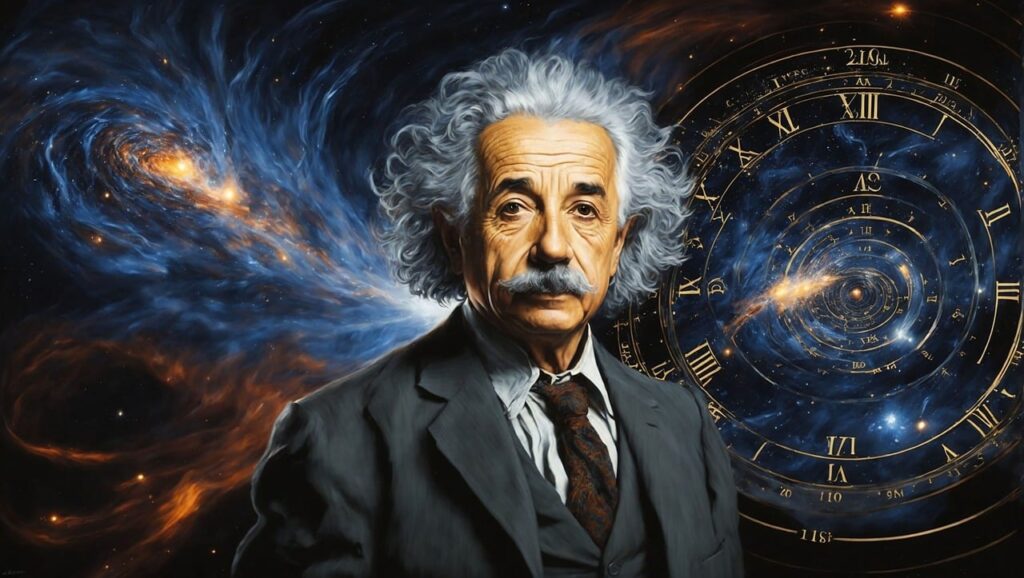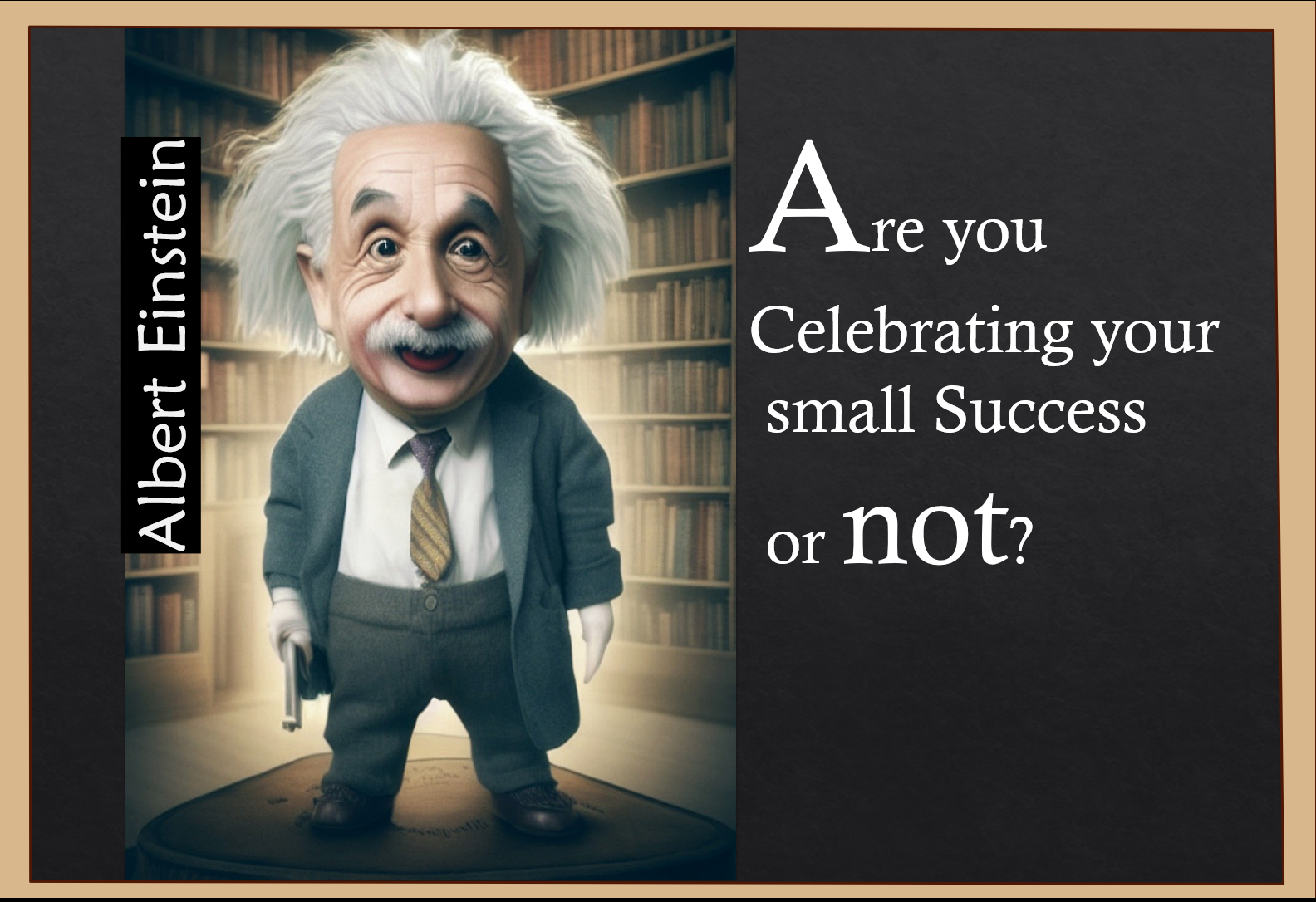Introduction
Albert Einstein, a name synonymous with genius, is celebrated not only for his groundbreaking contributions to physics but also for his profound wisdom on life itself. Among his many pearls of wisdom, the quotation, “It is time to celebrate success, but it is more important to heed the lessons of failure,” stands out as a beacon of guidance for anyone navigating the intricate journey of life. In this article, we will delve into the essence of He words, exploring their meaning and relevance in various aspects of our lives. We will uncover unique insights and practical applications that can help us unlock the power of both success and failure.

1. Embracing Success
To understand the significance of his words, let’s begin with the first part of his statement: “It is time to celebrate success.” Success, a word that carries different meanings for different people, is often celebrated as the pinnacle of one’s endeavors. We throw parties, give ourselves a pat on the back, and share our achievements with the world. But what lies beyond the surface of this celebration?
Success, in its most profound sense, is not merely the achievement of a goal or the culmination of a project. It is a reflection of dedication, hard work, and resilience. It symbolizes the power of perseverance and the ability to overcome obstacles. It is a testimony to the human spirit’s capacity to soar to new heights. Therefore, celebrating success is not about gloating; it is about recognizing and appreciating the qualities and efforts that led to that success.
2. The Lessons of Failure
However, His wisdom goes beyond the act of celebration; he emphasizes the importance of “heeding the lessons of failure.” Failure is often considered an unwelcome guest on the path to success. It carries a stigma, a sense of defeat that can be difficult to accept. But what Einstein suggests is that failure is not the end; it is, in fact, the beginning of learning and growth.
Failure, when analyzed and understood, can be a treasure trove of insights. It offers a mirror through which we can examine our actions, strategies, and decisions. Each failure contains within it the potential for improvement. It teaches us to adapt, to be resilient, and to innovate. In essence, it is the stepping stone to future success.
3. The Duality of Success and Failure
Einstein’s quotation underscores the duality of success and failure. They are not isolated events but two sides of the same coin. Success can be built upon the lessons of failure, and failure can be a precursor to success.To demonstrate this, let’s explore a few examples.
a. Scientific Discovery
Einstein himself is a prime example of how failure can lead to groundbreaking success. Before developing his theory of relativity, he faced numerous setbacks and rejections. His perseverance in the face of these failures eventually resulted in one of the most significant scientific breakthroughs of the 20th century.
b. Entrepreneurship
In the world of business and entrepreneurship, failure is often seen as a stepping stone to success. Many successful entrepreneurs have experienced business failures before finding the right formula for their endeavors. These failures serve as valuable lessons and shape their future endeavors.
c. Personal Growth
On a personal level, our failures often lead to the most profound growth. It is through our mistakes and shortcomings that we learn more about ourselves, our limitations, and our strengths. By heeding these lessons, we can become better versions of ourselves.

Albert Einstein
4. The Art of Learning from Failure
So, how can we effectively “heed the lessons of failure”? It’s not enough to merely acknowledge failure and move on; we must actively engage in a process of learning and self-improvement. Here are some key steps to unlock the wisdom that failure holds:
a. Self-Reflection
Take time to reflect on your failures. Analyze what went wrong, what decisions led to the failure, and what could have been done differently. Self-awareness is the first step toward learning from your mistakes.
b. Adaptability
Embrace change and adapt to new circumstances. Failure often occurs when our strategies and plans are rigid and inflexible. Be open to altering your course based on the lessons learned.
c. Resilience
Resilience entails the capacity to recover from setbacks, emphasizing the importance of maintaining a positive perspective and not allowing obstacles to shape your self-identity or self-worth. Remember, failure is an occurrence, not a reflection of your character.
d. Innovation
Use the lessons from failure as a source of innovation. What didn’t work can provide valuable insights into what might work in the future. Think of failure as a guide, showing you alternative paths to Achievement.
5. The Role of Success in Our Lives
While Einstein’s quote emphasizes the significance of learning from failure, we shouldn’t overlook the importance of celebrating success. Achievement is not just an end goal; it is a powerful motivator. When we celebrate our achievements, we reinforce the positive behaviors and decisions that led to that Achievement. It fuels our self-confidence and determination to reach new heights.
a. Motivation
Achievement serves as a wellspring of motivation. When we experience the joy and pride that come with achieving our goals, we are more inclined to set higher standards for ourselves and work diligently to attain them.
b. Building Confidence
Each success, no matter how small, builds our self-confidence. It reinforces the belief that we are capable of achieving our dreams. This self-assurance can have a ripple effect in all areas of life.
c. Recognizing Effort
Celebrating Achievement is a way of recognizing the hard work and dedication that went into achieving it. It is a reminder that effort and persistence pay off.
6. Balancing Success and Failure
The key to a fulfilling and well-rounded life lies in balancing both success and failure. Each has its role to play in our journey. Here are some practical ways to strike this balance:
a. Set Realistic Expectations
Understand that not every endeavor will lead to immediate Achievement. Set realistic expectations and be prepared to encounter failure on your path to achievement.
b. Embrace Failure as a Teacher
Don’t perceive failure as an adversary; instead, regard it as a mentor. Nurture a growth mindset that recognizes setbacks as chances for learning and personal development.
c. Celebrate Milestones
Even on the road to a larger goal, take time to celebrate smaller milestones. Recognizing these achievements can keep you motivated and focused on the bigger picture.
d. Continuous Learning
Achievement should not be a destination; it should be part of an ongoing journey. Keep learning, growing, and evolving, both in success and in failure.
7. Conclusion
In a world that often celebrates only the end result, Einstein’s words remind us to take a closer look at the journey. Success and failure are not isolated events but integral parts of our personal and professional growth. They are intertwined, each offering something unique and valuable.
By celebrating Achievement, we acknowledge our achievements and gain motivation, confidence, and a sense of fulfillment. By heeding the lessons of failure, we learn to adapt, innovate, and grow. The balance between these two forces is where true wisdom and personal development lie.
So, as you journey through life, remember the profound wisdom of Einstein. Celebrate your Achievement, but never forget the lessons that failure can teach you. In this delicate dance between success and failure, you’ll find the path to becoming the best version of




